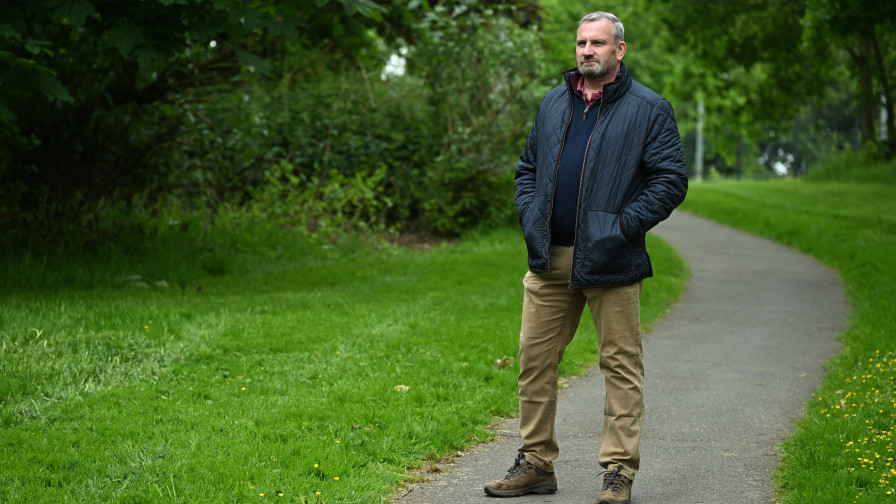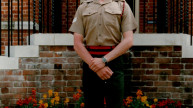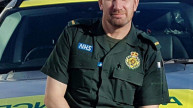David's Story
“Thank you, Combat Stress. I wouldn’t have survived without you.”
After a turbulent childhood, David joined the Army to find a family and a place to belong. But after nine years in the forces, he found his experiences hard to leave behind. Here he shares how we helped him to move forward.
David joined the Army in 1988 after a difficult childhood. “I was 16 and trying to keep myself out of trouble,” he says. “I wanted somewhere to belong because I didn’t belong where I was. I didn’t have a family per se, and I wanted to find one.”
He joined the Junior Leaders Regiment, Royal Armoured Corps and moved onto the Royal Military Police. “The camaraderie was fantastic,” he says. “You rip the mickey out of each other constantly, but there’s no malice. Then when it comes to needing each other you’re there, standing shoulder to shoulder. You don’t get that anywhere else.”
David was deployed to Operation Granby in the first Gulf War, and Northern Ireland. It was incidents here that were part of the catalyst for his PTSD.
“There were two episodes within my military life that affected me,” he says. “The first was the first Gulf War. Basra Highway was known as Carnage Carriageway, and it was exactly like it sounds. At 18 years old you think you’re tough enough to deal with it but you’re not. That will always live with me.
“In Northern Ireland in 1996, I was 20-30m from the second IED that went off at Thiepval Barracks in Lisburn and was blown onto a nearby sports field. To be seconds away from death brings it all home to you. They’re the two that wake me up at night.”
David left the Army in 1997 after nine years. He spent five years as a police officer, before becoming a paramedic where he dedicated himself to trauma cases. However, the death of a child at work in 2018 hit him hard, and he found himself struggling with his mental health.
“It was the straw that broke the camel’s back,” he says. “I had four months away from work and didn’t get out of bed, didn’t want to do anything. Then I started to get angry – really angry.
“I didn’t like myself because I was angry at everything and everyone. Thank God I have a wife who was willing to look past it and see the person I had been and that I could be. We came very close to ending, and it was her strength that got us through. That’s when I realised that I wasn’t right, I couldn’t turn the anger off. I was never violent or aggressive, but I wouldn’t have lived with me.”
One day in 2018 David found himself standing at the top of a quarry. “I was looking down and making the decision whether to step forward, or back,” he says. “I decided to step back. It felt logical, I was going through the pros and cons and the one good thing the military teaches you is to look out for each other. What made me step back was when I thought I can’t leave that mess there for my colleagues to find.”
David reached out for help, but the NHS couldn’t offer what he needed so he approached his GP who put him on antidepressants. “I work in medicine, and it was the last thing I wanted, but it worked,” he says. “It stopped me being angry, but it stopped me being me too.”
David spent four years on medication which allowed him to work “but not live” before deciding to come off it. “I’d left the ambulance service and was working in a hospital running a department and doing my master’s degree,” he says. “I was trying to come off the meds but I didn’t realise I was changing. Then one of my colleagues said very bluntly that I needed to get help. He could see that it wasn’t going to end well for me professionally if I didn’t. I didn’t know where to go – absolutely no idea. So I went on Google and found Combat Stress, so I called them in early 2023.”
After an assessment David went on to have treatment with us, which included a course on learning to use your senses to change how you are feeling. He was initially skeptical but soon came round. “The soldier in me said why do I need to learn how to breathe and squeeze a ball?” he says. “But I was committed to getting better and would do anything, even if I didn’t think it would help. Boy was I wrong. Just learning those skills enabled me to cope better on a daily basis and that was just the start.”
He went on to have weekly 1:1 sessions with a psychologist and has now completed treatment. “She was amazing,” David says. “I got to the end and was able to sleep, I was able to smile and there was a light. My marriage is good, we’re happy.”
David has now joined our Peer Support Group where he meets regularly with other veterans who have received our treatment. “We’re a group of veterans of different ages who have experienced everything from the Falklands to Afghanistan and everything in between. It’s great; you have the banter, the camaraderie and you know if you’ve had a bad day, you’ve still got support.”
After not knowing about our treatment for so long, in his day job at the hospital David now gives veterans experiencing mental health issues our Helpline number. “If Combat Stress didn’t exist, you’d have a lot of dead veterans,” he says. “They were there when nobody else was - I wish I’d known about them years ago. They understand veterans so don’t ever think you’re on your own. The day you feel you’re on your own is the day you need to call them.
“Thank you, Combat Stress. I wouldn’t have survived without you.”
May 2024








